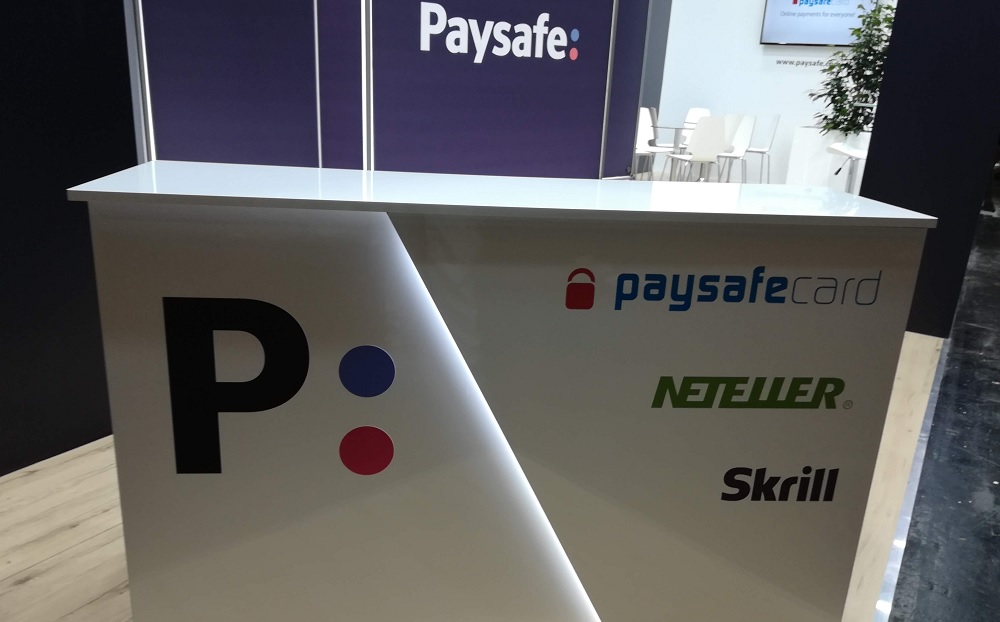Payments company Paysafe is seeking to nix a stockholder lawsuit concerning the steep decline in its share price in 2021.
On July 15, 2024, Paysafe Limited f/k/a Foley Trasimene Acquisition Corp. II, Philip McHugh and Ismail Dawood, filed a motion to dismiss the Consolidated Amended Complaint (CAC) with prejudice pursuant to Rule 12(b)(6) of the Federal Rules of Civil Procedure. The relevant documents, seen by FX News Group, were submitted at the New York Southern District Court.
Paysafe offers a suite of payment processing services, including digital wallet and e-cash services, to businesses and consumers. Its digital wallet and e-cash services specifically position it as a key player in the iGaming industry—which encompasses multiple forms of online gaming.
In the second half of 2021, Paysafe faced headwinds which were driven in part by seasonality as COVID lockdowns ended in certain markets and fewer people engaged in iGaming during the summer months, and in part by softness in the European market as a result of regulatory changes which affected the iGaming industry.
As is particularly relevant here, Germany passed legislation, known as the Fourth Interstate Treaty on Gambling (the “German Regulations”), which was announced in March 2020 and took effect on July 1, 2021. Among other changes, the German Regulations introduced a €1,000 cross-operator monthly deposit limit for iGaming players. Paysafe disclosed the regulations and the risks associated with regulatory changes to the market.
Faced with these headwinds, Paysafe announced in August 2021 that it was reducing guidance for the third quarter, and in November 2021 announced that it had missed third quarter guidance.
As alleged in the Complaint, Paysafe’s stock price declined following each of these announcements. Plaintiffs brought securities fraud claims on the basis that Paysafe’s disclosures concerning the German Regulations must have been insufficient. The plaintiffs bring securities fraud claims based on the theory that Defendants knew, but omitted from their disclosures, that the cross-operator monthly deposit limit was likely to have a significant, negative impact on Paysafe’s business.
According to Paysafe, Plaintiffs’ claims must fail for several reasons.
First, Paysafe argues, Plaintiffs’ entire case rests on Defendants’ alleged omission of the anticipated negative impact of the German Regulations, which is inactionable pursuant to the Supreme Court’s recent decision in Macquarie Infrastructure Corp. v. Moab Partners, L. P., 601 U.S. 257, 259 (2024). The challenged statements are also legally inactionable as either forward looking statements subject to the PSLRA safe harbor, statements of opinion, corporate optimism or puffery. Courts are clear that Plaintiffs cannot proceed on the basis of such statements.
In addition, Plaintiffs do not allege contemporaneous facts showing the statements at issue were false when made—the sole allegation is that the German market was important to Paysafe, and therefore Defendants should have known the upcoming German Regulations would have a material negative financial impact on Paysafe.
Second, according to Paysafe, Plaintiffs fail to plead with particularity facts giving rise to a strong inference of scienter. Plaintiffs’ theory that Defendants engaged in a scheme to inflate the FTAC and Paysafe share prices until the merger was consummated is not supported by anything other than pure speculation—such as a single confidential witness—or by any allegations as to McHugh and Dawood’s motive for participating such a scheme.
Further, according to Paysafe, Plaintiffs fail to plead any particularized facts supporting the allegations that Defendants’ knew that the cross-operator monthly deposit limit would have a material impact on Paysafe’s overall financial performance.
Third, Paysafe insists that Plaintiffs fail to plead loss causation as the alleged corrective disclosures do not correct any of the prior alleged misstatements or omissions. Rather, the so-called corrective disclosures provide that Paysafe’s decision to lower third quarter guidance and the subsequent miss to that guidance were based in part on the “more meaningful impact than [] anticipated” effect of the German Regulations and in part on wholly unrelated headwinds. Moreover, the allegedly concealed information—the cross-operator monthly deposit limit and the fact that Germany was a significant market for Paysafe—was publicly available prior to both alleged corrective disclosures.
Fourth, Plaintiffs’ allege that Defendants engaged in a “scheme” to keep the stock price inflated by making the alleged misstatements and omissions so that the merger would consummate. Paysafe says that scheme liability requires more than just a repackaging of Plaintiffs’ deficient Rule 10-b(5)(b) claim, and their Rule 10-b(5)(a) and (c) claim should therefore be dismissed.
Finally, Paysafe argues that Plaintiffs’ Section 20(a) claim must be dismissed because the CAC fails to establish any well-pleaded, predicate violation of the securities laws, or any culpable participation.









